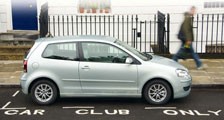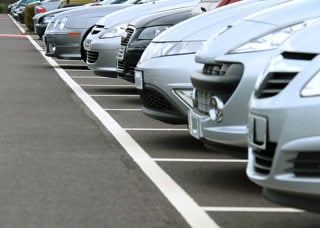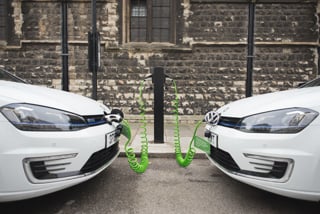Car clubs have seen a recent surge in corporate membership, with numbers doubling in the past year and more than 80% of corporate members having signed up to a scheme in the past three years, research suggests.
The Carplus Annual Survey also reveals that corporate members are more than happy with the service, with nine out of 10 rating their car club as ‘good’ or ‘very good’.
However, it appears that the growth in car club membership is coming from smaller businesses rather than from organisations that traditionally operate a large fleet of vehicles.
The majority of organisations (72%) that responded to the survey employ fewer than 10 individuals and (76%) were in the private sector.
Carplus suggests that car club membership may appeal to smaller companies, particularly in central locations, whose staff do not travel by car frequently on business journeys or do not have resources to manage a car fleet.
Chas Ball, chief executive of Carplus, said: “Car clubs are an essential part of the urban mobility strategy of smart cities.”
Almost a third of corporate members (29%) cited cost savings as a benefit of car clubs.
One in five respondents (19%) noted reduced administration, with 15% mentioning improved employee satisfaction.
Financial savings may come in various forms. There are likely to be productivity gains from corporate car club membership, particularly through the ability of employees to make multi-destination trips by car club vehicles as part of the working day.
Such trips are often difficult by public transport, particularly outside London. Further financial benefits may be derived from reduced administration of employee mileage claims and provision of on-site parking to accommodate employees own cars for business travel use.
Small proportion of business mileage
However, car club use represents a relatively small proportion of business mileage for companies which are car club members.
For half of all businesses, less than 10% of their business mileage was in car club cars.
This illustrates that corporate car club membership is used as part of a wider staff travel offer that may include other modes and other types of car travel.
There are some businesses which are more reliant on car club vehicles; almost one in 10 of the corporate respondents estimated that between 80-90% of their business mileage was in car club cars, while a quarter of respondents estimated that at least half of all business travel was undertaken in car club vehicles.
Carplus, which is the national accreditation body for car-sharing clubs in the UK, surveyed both employees and employers from more than 150 organisations.
It found that the use of car clubs for business travel was helping to tackle issues around employees using their own cars for business purposes – the so-called grey fleet.
Nearly half (46%) of respondents stated that they used their own car for business travel before joining the car club, but just 7% stated that they travelled this way after joining.
However, despite the increase in corporate membership and the benefits that it can bring, business users still make-up a relatively small share of the market.
The survey found that the majority of car club members in Great Britain live in London (84%) which is the primary market for car clubs. Most members (82%) have individual membership, with just 18% holding a corporate membership.
Car clubs tackle grey fleet issues
Nevertheless, the car club sector is changing rapidly as rental companies and manufacturers enter the market, along with new models such as one-way schemes.
For example, the car-sharing scheme Car2go was launched by Daimler and Europcar in London in December 2012 in just two boroughs and is now being expanded to include several more with a 500-strong fleet.
It has also just launched a service in Birmingham offering access to 250 cars.
Carplus figures suggest that there are about 122,300 car club members in London using approximately 2,270 car club vehicles.
Elsewhere in England and Wales, there are 18,500 car club members using 490 car club vehicles.




















Login to comment
Comments
No comments have been made yet.